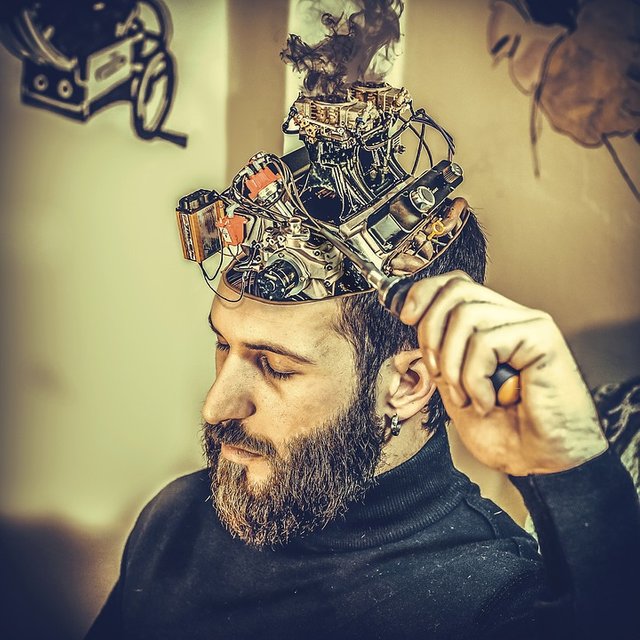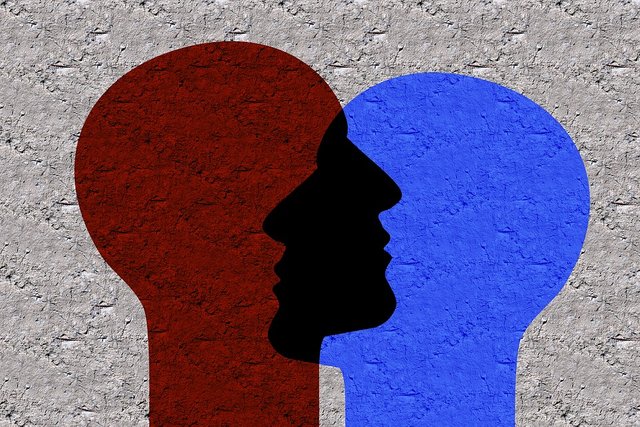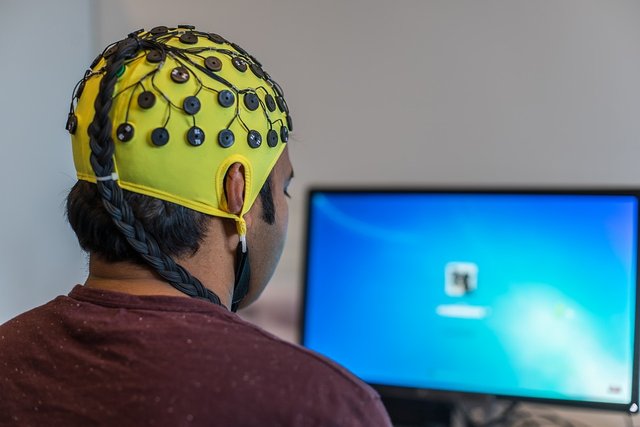My Thoughts on Neuro-Feedback Treatment After Two Sessions
In an effort to continue on the self-improvement path, I've begun neuro-feedback treatment

For those that haven't read my other posts on the subject, Neuro-Feedback is a form of bio-feedback treatment that utilizes real-time brain-wave monitoring as a way to adjust a person's mental state.
An initial scan of the brain is taken in order to compare it to that of a normal-functioning brain. Each subsequent treatment session focuses on individual areas of the brain, particularly those that are most out of balance with ideal functioning.
The practitioner and I have decided to focus on the parts of the brain dealing with dissociation
In discussing the issues I want to address, namely focus, anxiety, and negative thought patterns, I've come to the realization that I dissociate frequently. I believe I began doing this early in my life, as a way to cope with my environment. My family life was dysfunctional. Not of the overt, traumatic variety, but more of the subtle and persistent kind that slowly eats away at your sense of self.
Dissociation allowed me to numb out, as I was disconnected from the drama around me. Although I've since reconciled the issues that were present during that time, I still experience moments of dissociation.

Often when people are talking with me, I find myself 'zoning out' and not being in the moment. While reading, I frequently have to reread a paragraph several times before I understand the information. My therapist relates this to dissociation, as my consciousness is not able to focus fully when I am outside of my body.
The treatment method has been a straightforward process
The EEG monitor has been connected to the part of the brain related to dissociation (I can't recall the exact name as of right now). She sets the parameters for how she wants my brainwaves to adjust to. I close my eyes, and we begin the session. Every time I am within the desired frequency range, a sound beeps.

During the first session, I did not stay within this parameter very often. When the noise would go off, I would start to think about how it was going off, inevitably causing it to stop beeping. The process of thinking about how I was doing it well would cause me to not do well! If you've ever meditated before, you can relate to this experience, as the process of being present is immediately interrupted when you begin to comment on how you are being present.
For the second session, we worked on the same area of the brain. I found myself able to remain within the desired frequency range more often, and I also noticed a buzzing sensation in my forehead, similar to experiences I've had while in deep meditative states. Being able to connect a tangible feeling to the desired parameters was encouraging, as it made the treatment benefits more apparent.
After two sessions, my treatment has had a subtle but tangible effect
My therapist states that a person can notice the effects of treatment after two or three sessions, and I have noticed small positive outcomes thus far. While not life-changing, the results have been encouraging. I have seen a reduction in my 'zone outs', as I am more acutely aware of my body and the effect my mind has on it.

The results of neuro-feedback treatment are most apparent to me on the drive home from the session, as I have a greater sense of clarity and a feeling of calm. I've read articles that state that the effects of neuro-feedback is negligible when compared with the placebo.
Whether I am merely experiencing a placebo effect or not, I AM noticing slight changes in my consciousness and ability to focus. I am encouraged by the results thus far, and am excited to continue optimizing my brain performance with this method.
All images from the pixabay.com
I’ve experienced good results with neurofeedback treatment. There are CEOs of companies using it for peak performance. Also it helps people get off dangerous pharmaceuticals. Thanks for an in-depth look at your experience
Indeed. Tony Robbins stated it was one of the most transformative things he's ever done, though he did an intensive all-day, week-long program.
Dave Asprey of Bulletproof Coffee fame also swears by it.
Someone I know that went to the same practitioner was able to get off of Adderall and their anti-depressant after a few weeks of neurofeedback.
This is interesting. What do you suggest for people who have no access to these treatments? I meditate daily and been thinking to get a brainwave reader like MUSE, not sure if it provides a similar effect.
Good question. I just researched a muse now and it sounds simlar, but much less precise. If an eeg machine is not available near you for an affordable rate, it might be a reasonable option, though the amazon reviews sound mixed, overall.
Where are you located?
This is really interesting.
Correct me if Im wrong but this is like EEG to regulate mindfulness.
My postgrad was Neuroscience and undergrad was Psych.
I'll be writing about some alternative therapies which use neuro-imaging tools after reading this.
You've inspired me sir.
Followed-resteemed-upvoted
You are correct! It's very similar, you are just using the EEG to alter and adjust your brainwave patterns instead of just monitoring it.
Thanks for the upvote/follow/resteem, I'll be on the lookout for your writing!
Thanks for the post Colin; very interesting. This is something I'll definitely look into more for treating my PTSD. Cheers.
Glad you found it useful!